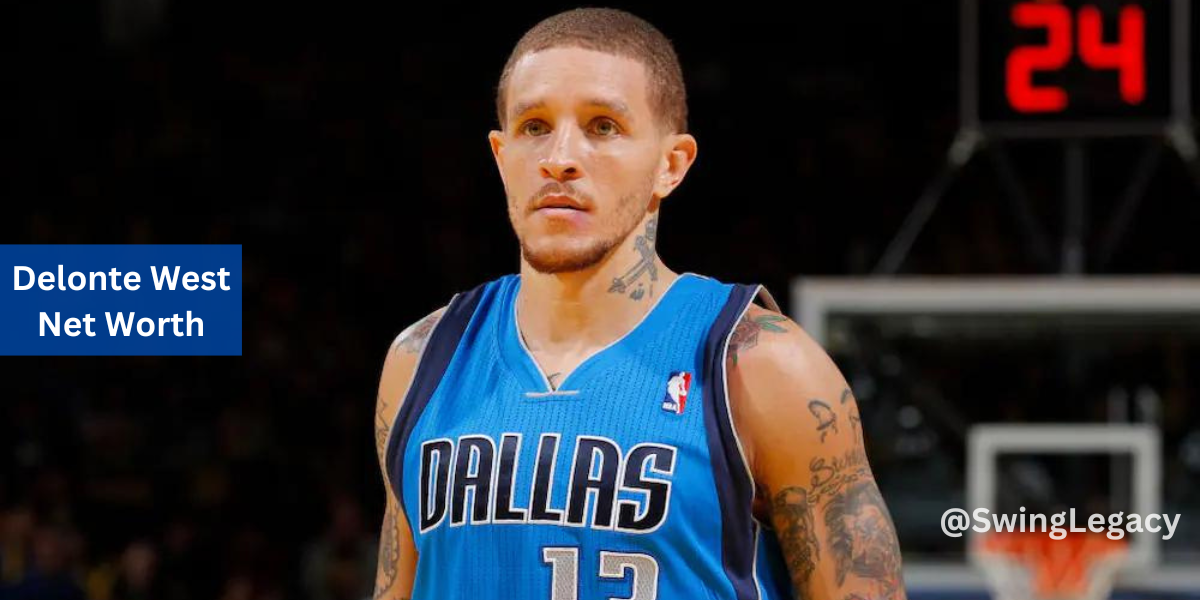When Delonte West announced his retirement from basketball, it sent shockwaves through the NBA community. The journey of this once-promising player was marked by highs and lows, moments of brilliance and struggles that eventually defined his career. Today, as we reflect on his decision to step away from the game, it's important to understand the factors that led him to this point. This isn't just about basketball; it's about life, resilience, and the challenges faced by athletes who sometimes lose their way.
Delonte West's story is one that resonates with many fans who followed his career closely. From his early days as a promising rookie to his tumultuous later years, West has always been a fascinating figure in the world of sports. His retirement wasn't just another athlete hanging up their sneakers—it was a moment that made people pause and reflect on the pressures faced by professional athletes.
As we dive deeper into this topic, we'll explore the reasons behind Delonte West's retirement, the impact it had on his life, and what lessons we can learn from his journey. This article aims to provide insight into his career, personal struggles, and the legacy he leaves behind. So, buckle up, because we're about to take a trip down memory lane!
Read also:Gina Lollobrigida Reflects On Her Iconic Career And Personal Life
Table of Contents
- Delonte West Biography
- Early Career and Rise to Fame
- Challenges Faced During His Career
- Mental Health Struggles
- Delonte West Retirement
- Financial Issues Post-Retirement
- Legacy and Impact
- Support Systems for Athletes
- What's Next for Delonte West?
- Conclusion: Lessons Learned
Delonte West Biography
Delonte West, born on September 26, 1983, in Philadelphia, Pennsylvania, was a standout player from a young age. Known for his speed, agility, and competitive spirit, West quickly became a fan favorite in the NBA. Below is a quick glance at his personal details:
| Full Name | Delonte Lamont West |
|---|---|
| Date of Birth | September 26, 1983 |
| Place of Birth | Philadelphia, Pennsylvania |
| Height | 6'3" (1.91 m) |
| Position | Point Guard / Shooting Guard |
| College | Tulsa (2002–2004) |
West's journey from a young basketball prodigy to a professional athlete is one filled with highs and lows. His retirement marked the end of an era, but it also opened the door to new opportunities and challenges.
Early Career and Rise to Fame
Delonte West's career began in 2004 when he was drafted 24th overall by the Seattle SuperSonics. From the get-go, he showed promise as a player with a knack for scoring and playmaking. His early years in the league were filled with excitement, as he quickly became a key player for the team.
By 2006, West found himself traded to the Cleveland Cavaliers, where he would spend the most memorable years of his career. Playing alongside LeBron James, West became an integral part of the team, contributing significantly to their success. His ability to hit clutch shots and defend aggressively made him a fan favorite in Cleveland.
Highlights of His Early Career
- Part of the Cleveland Cavaliers team that reached the NBA Finals in 2007
- Averaged 11.5 points per game during his peak years
- Known for his clutch performances in high-pressure situations
West's early career was marked by success, but as we'll see, things took a turn later on.
Challenges Faced During His Career
Despite his early success, Delonte West's career was not without its challenges. The pressures of playing at the highest level, combined with personal issues, began to take a toll on him. One of the most notable incidents occurred in 2010 when he was involved in a locker room altercation with LeBron James, leading to his departure from the Cavaliers.
Read also:Unveiling The Multifaceted Life Of Kelsey Grammer An Inspiring Journey Through Fame
After leaving Cleveland, West bounced around several teams, struggling to find his footing. His time with the Boston Celtics and Washington Wizards was marred by inconsistent performances and off-court issues. It was clear that something was amiss, and fans began to wonder what had happened to the once-promising player.
Key Challenges
- Publicized conflicts with teammates and coaches
- Difficulty adapting to new teams and environments
- Struggles with mental health and personal issues
These challenges ultimately played a significant role in shaping West's decision to retire from basketball.
Mental Health Struggles
One of the most significant factors contributing to Delonte West's retirement was his battle with mental health issues. Over the years, West has been open about his struggles with bipolar disorder, depression, and anxiety. These challenges not only affected his performance on the court but also his personal life.
West's mental health struggles were compounded by the high-pressure environment of professional sports. The constant scrutiny from fans, media, and teammates made it difficult for him to cope with his condition. Despite seeking help and undergoing treatment, the stigma surrounding mental health in sports made it challenging for him to fully address his issues.
Importance of Mental Health Awareness
- Raising awareness about mental health in sports
- Encouraging athletes to seek help without fear of judgment
- Providing better support systems for players dealing with mental health issues
West's story serves as a powerful reminder of the importance of mental health awareness in the world of sports.
Delonte West Retirement
In 2012, Delonte West officially announced his retirement from the NBA. The decision came after a series of setbacks, both on and off the court. West's retirement was met with mixed reactions from fans and analysts alike. Some saw it as a necessary step for him to focus on his personal life, while others lamented the loss of a talented player.
West's decision to retire was influenced by a combination of factors, including his mental health struggles, financial issues, and a desire to spend more time with his family. Although his career ended prematurely, West's legacy as a player who overcame adversity remains intact.
Reasons for Retirement
- Mental health challenges
- Financial difficulties
- Desire to focus on personal life
West's retirement marked the end of an era, but it also paved the way for new opportunities and growth.
Financial Issues Post-Retirement
One of the most pressing concerns for Delonte West after retirement was his financial situation. Like many athletes, West faced financial challenges due to poor investments, legal issues, and mismanagement of funds. These problems were exacerbated by his early retirement, which left him without a steady income.
Despite these challenges, West has worked hard to rebuild his life and secure his financial future. He has spoken openly about the importance of financial literacy and education for athletes, urging them to take control of their finances from the start of their careers.
Financial Tips for Athletes
- Seek professional financial advice early in your career
- Avoid making impulsive investment decisions
- Focus on building long-term financial stability
West's experience serves as a cautionary tale for athletes who may face similar challenges in the future.
Legacy and Impact
Delonte West's legacy in the NBA is one of resilience, determination, and overcoming adversity. Despite the challenges he faced, West remains a beloved figure among fans who remember his clutch performances and competitive spirit. His story is a testament to the importance of mental health awareness and the need for better support systems for athletes.
West's impact extends beyond the court, as he continues to advocate for mental health awareness and financial literacy in the sports community. His willingness to speak openly about his struggles has helped break down barriers and encouraged others to seek help when needed.
Support Systems for Athletes
Delonte West's journey highlights the need for better support systems for athletes dealing with mental health and financial issues. Organizations like the NBA have taken steps to address these concerns, but more needs to be done to ensure that players receive the help they need.
Some of the initiatives currently in place include:
- Mental health programs and counseling services
- Financial education and planning resources
- Peer support networks for athletes
These programs are crucial in helping athletes navigate the challenges of professional sports and transition smoothly into life after retirement.
What's Next for Delonte West?
Since retiring from basketball, Delonte West has focused on rebuilding his life and pursuing new opportunities. He has spoken openly about his struggles and the lessons he's learned, using his platform to advocate for mental health awareness and financial literacy.
West's future remains uncertain, but one thing is clear: he continues to inspire others with his resilience and determination. Whether he chooses to return to the world of sports or pursue a new path, West's legacy as a fighter and advocate will endure.
Conclusion: Lessons Learned
In conclusion, Delonte West's retirement from basketball was a pivotal moment in his life that forced him to confront the challenges he faced both on and off the court. His story serves as a powerful reminder of the importance of mental health awareness, financial literacy, and support systems for athletes.
As we reflect on West's journey, we can take away several key lessons:
- Mental health is just as important as physical health
- Financial education is crucial for long-term success
- Support systems are essential for athletes navigating the pressures of professional sports
We invite you to share your thoughts on Delonte West's story in the comments below. What lessons can we learn from his journey? How can we better support athletes facing similar challenges? Let's keep the conversation going and work together to create a brighter future for all athletes.


